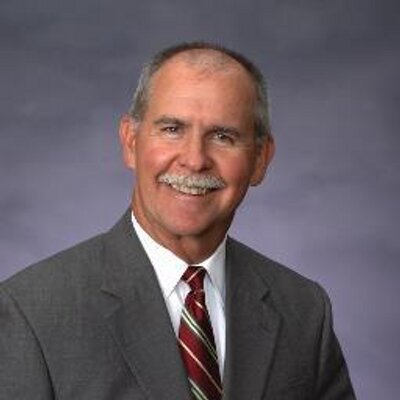
Merrill: Stipends coming, but ‘painful’ decisions will follow
Wayne County Public Schools teachers will get their supplements and June paychecks with help from state funds, not by asking the county commissioners to pick up the bill, the district’s acting, and soon-to-be-interim, Superintendent Dr. James Merrill said.
But he also outlined cost-cutting measures that are likely on the horizon, including potential staff cuts.
Merrill told the board at a special called meeting Friday that he has been in contact with the Department of Public Instruction and is negotiating the ability to use state funding that is already in the district’s coffers to cover the end of the month payroll for June, 11- and 12-month salaries and teachers’ stipends.
The move will come with a cost, although Merrill said it is unclear what that “interest” would be, suggesting it could be 1 percent. The money would also have to be paid back to the state fund.
When asked if the move, which is in essence transferring money from one fund to cover a deficit in another, was similar to the decision to take $3 million from the School Food Services fund and transfer it to the General Fund, Merrill said he was not aware of that decision, which was brought to the board’s attention during a presentation by auditors Rives & Associates at its June 3 meeting.
But, he did say, “those are federal funds.”
Merrill said using the state funds would give the board flexibility, adding that DPI and the State Board of Education have assisted other districts “in financial distress.”
Merrill said he was glad to be able to communicate to the county commissioners that the district would handle its deficit this way.
“It’s great for Wayne County that right now, we don’t have to ask the county to add a burden to help us out,” he said. “We can try to swim our way out of this with the state.”
Merrill did note, however, that the commissioners were ready to step up if need be.
Board Chairman Chris West said that the teachers’ stipends and paychecks were the board’s top priorities.
Merrill appeared before the board to update its members and the public about measures being taken to deal with the district’s estimated $5 million budget shortfall.
He officially takes office as interim superintendent on June 27, however, that does not mean that he is not already earning his $22,587 a month salary, plus his $275 a week temporary housing allowance, WCPS public information officer Ken Derksen confirmed after the meeting.
The details surrounding former Superintendent Dr. Michael Dunsmore’s departure have not been released. However, board member Ven Faulk addressed a community member’s question about a potential financial settlement on a Facebook post this week.
“He resigned, terminating any further payments on his contract, other than any accumulated vacation or leave days,” Faulk wrote.
Dunsmore’s resignation is effective June 26, although he is no longer in the building or in control of anything at Central Office.
The board has retained School Operations Specialists to examine the district’s financial operations in preparation for creating a 2020-21 budget, which is due July 1, and dealing with the projected deficit.
Merrill said right now, because the district is still reconciling June bills and reviewing paperwork and “records left from two key vacancies” (Dunsmore and Finance Officer Michael Hayes), the district’s full financial picture is unclear.
“It is hard to say our exact balance,” he said.
Merrill also announced that Dr. David Lewis, assistant superintendent for accountability and technology, is functioning as the district’s interim finance officer for signatures and other immediate needs.
Merrill said the short time period to review the district’s financial picture is a challenge.
In most cases, he said, districts are aware of their financial picture well before budget time.
“Sometimes districts in mid-year, December, January, discover they are in trouble and they have got about six months to pull some levers and make some adjustments,” he said. “It is very, very difficult to do so with three weeks left in the fiscal year.”
Merrill said he has been interacting with the remaining Central Office staff, including the bevy of assistant superintendents and Finance Office personnel.
“The communication around this has been difficult,” Merrill said. “Everyone seems to have an opinion and know what is going on.”
All that means, he said, that the district’s financial picture is unclear as are the accuracy of balances in the funds and accounts.
“There aren’t a lot of documents. There aren’t a lot of spreadsheets for managers to work from,” Merrill said. “And that’s been part of the systemic problem.”
He said one of the district’s challenges moving forward is managing employee and community expectations.
“Folks expect to be taken care of,” he said. “The community doesn’t really care what the problems are. They just want it done and done correctly.”
Merrill added that the short timeframe before the budget is due also means that the budget work — and adjustments — might not be able to be done collaboratively, with as much input as he would like.
In addition to outlining the challenges, Merrill also went over with the board what “we” know right now.
While the district has a complete audit and deficit total for 2018-19, there are no such statistics for 2019-20, mostly because of the uncertainty in those funds and accounts, and reconciliations that are still not done.
“It is much easier to do an accounting when everything is over,” he said.
Merrill also said there is a lack of “departmental budget tools,” adding that information is scarce.
“There are very few staff who are well-versed in budgeting and finance,” he said. “Top management, however, leadership team and others weren’t involved in building the budget. They really have very little experience in the X’s and O’s if you will, the ins and outs of financing. And so, through no fault of their own, regrettably, when I turn to them now and say, ‘OK, now you need to find cuts in order to build next year’s balanced budget,’ it is a relatively new experience for them.”
All of that means that moving forward, the district is looking at some tough financial decisions, Merrill said.
“The magnitudes of the deficits when building a balanced budget for 2020-21 will be painful and call for sacrifice, tolerance and compromise,” he said.
And that means that jobs might have to go, Merrill said.
“I have said the last thing I want to do is affect employees, but with the size of the deficit it may be difficult to avoid touching employees, very difficult.”
In addition to the discussions about the budget, Merrill also outlined some mid-term issues to address, including hiring a new finance officer, adding that seeking the right person for the job will not be an easy task.
He also advised that the board explore “potential sources and strategies for increased revenue.”
He added that the board will need to “communicate the impact and consequences of budget balancing” to the community and staff — including the possibilities of cuts to programs and personnel.
Merrill also seemed to acknowledge that there is a hiring freeze in the county, suggesting that even though the ban is in place, there will be some positions that will need to be filled.
He added that the county’s school board and the commissioners need to establish a regular joint meeting schedule and improve communication between the boards.
Merrill mentioned several times that there will be tough decisions ahead and that those choices will need to be communicated to the community.
“Tighten your seat belts because there is going to be a need to say ‘no’ to things,” Merrill said to board members.
But Merrill said school staff “will have to be more productive and do better probably with less.”
That means frugality and creativity will be the new norm, he said.
But Merrill said he expects the community and school personnel will step up to the challenge.
“People do respond well in situations like that,” Merrill said. “Americans do rise to the occasion.”
Long-term, Merrill said the district will have to look at establishing financial guidelines and policies to maintain a balanced budget – and enforce them.
“There is not a lot of that here yet,” he said.


A loaded discussion

Fighting for their lives

Goldsboro loses a giant

“I’m a flippin’ hurricane!”
Public Notices — Jan. 4, 2025

Belting it out

Legendary

Final Four!


